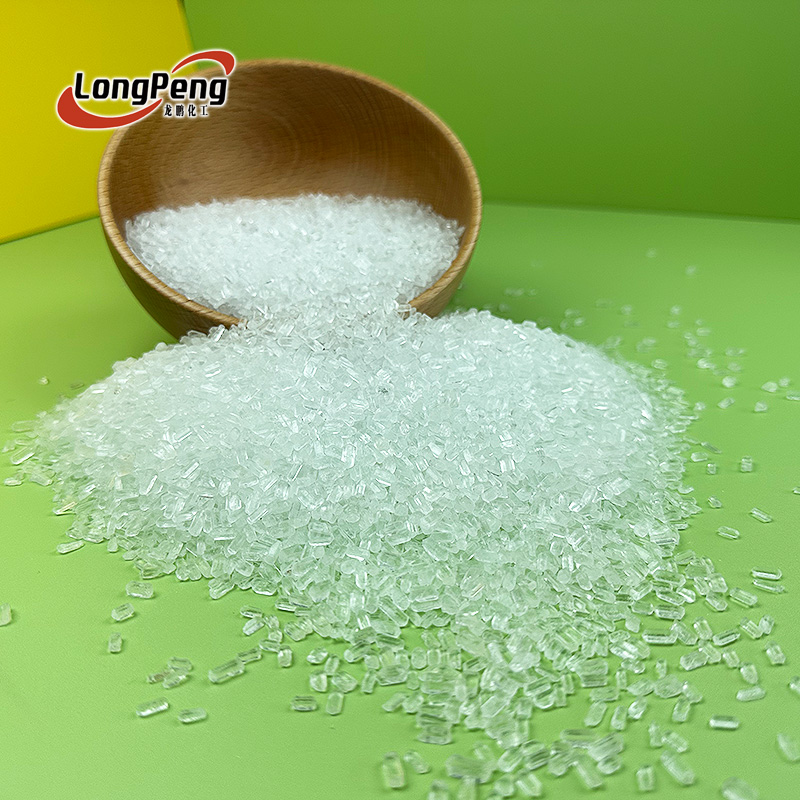When it comes to natural salts, both dead Sea salt and Epsom salt have gained recognition for their unique properties and potential benefits. This article will delve into the world of salts and compare the advantages of these two popular options. As the leading provider of high-quality magnesium sulfate heptahydrate, LongPeng introduces a comprehensive analysis of Dead Sea salt vs. Epsom salt, shedding light on their chemical composition, properties, and diverse applications.

Understanding Dead Sea Salt vs. Epsom Salt
Dead Sea salt is derived from the mineral-rich waters of the Dead Sea, renowned for its high salt content and unique composition. Packed with essential minerals like magnesium, calcium, and potassium, Dead Sea salt has become a sought-after ingredient in various industries.
Epsom salt, scientifically known as magnesium sulfate heptahydrate, is a naturally occurring compound that contains magnesium, sulfur, and oxygen. Epsom salt has been valued for centuries for its potential therapeutic properties and versatile applications.
Chemical Composition and Properties
Dead Sea salt and Epsom salt exhibit distinct chemical compositions and properties. While Dead Sea salt contains a diverse array of minerals, Epsom salt is primarily composed of magnesium sulfate. The unique combination of minerals in Dead Sea salt contributes to its reputed skin-nourishing and exfoliating properties. On the other hand, Epsom salt’s high magnesium and sulfate content promotes relaxation, muscle recovery, and overall wellness.
Applications in Various Industries
Both Dead Sea salt and Epsom salt find extensive applications across diverse industries.
Nutraceuticals: Dead Sea salt is incorporated into nutraceutical products for its mineral-rich composition, offering potential health benefits.
Bath and Body Products: Epsom salt is a popular ingredient in bath salts and soaks, providing soothing relief for sore muscles and promoting relaxation.
Gardening and Agriculture: Epsom salt is utilized as a natural fertilizer to enhance plant growth, improve nutrient absorption, and prevent magnesium deficiency in soil.
Health and Wellness: Epsom salt is widely recognized for its potential to relieve muscle tension, reduce inflammation, and support overall wellness.
Conclusion
In the comparison between Dead Sea salt and Epsom salt, both salts offer unique benefits and applications across various industries. While Dead Sea salt boasts a rich mineral composition for skincare and spa applications, Epsom salt’s high magnesium and sulfate content makes it a go-to choice for relaxation and wellness. As a leading provider of magnesium sulfate heptahydrate, LongPeng ensures the highest quality for your diverse needs. Embrace the advantages of Dead Sea salt and Epsom salt, and discover the remarkable benefits they can bring to your industry.
Read also:
